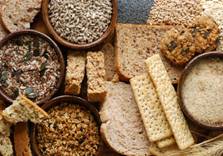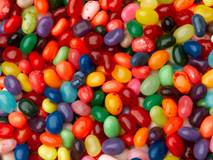Carbohydrates
Carbohydrates are the most important macronutrient because they are the best source of energy for the body. This is because carbohydrates can be easily converted to Glycogen, the 'energy currency' of choice for the body
60% of a person's total daily intake of nutrients should come from carbohydrate.
Types of carbohydrates we eat come in many different forms but can be divided into simple and complex carbohydrates.
Sources of carbohydrate
Simple carbohydrates are sugars that are generally sweet and sticky, such as jam, fruit and milk. Complex carbohydrates are sugars that look and feel dense and starchy, such as potatoes, bread and pasta.
Any type of carbohydrate is essentially sugar. When a sports performer eats carbohydrate though, there will be some that make them feel fuller than others. For example, eating a kilogram of sugar would not be as filling as eating a kilogram of pasta, but both foods would actually have the same energy value.
Carbohydrate contains 4 Kilocalories per gram (a Kilocalorie is a way of expressing the energy within food).
The only real difference between simple and complex sugars is the speed at which they are used by the body. Simple sugars are absorbed by the body more quickly than complex sugars. This means that a sports performer would get energy very quickly from a simple sugar food, but would use complex sugar foods for endurance because they release energy slowly.

